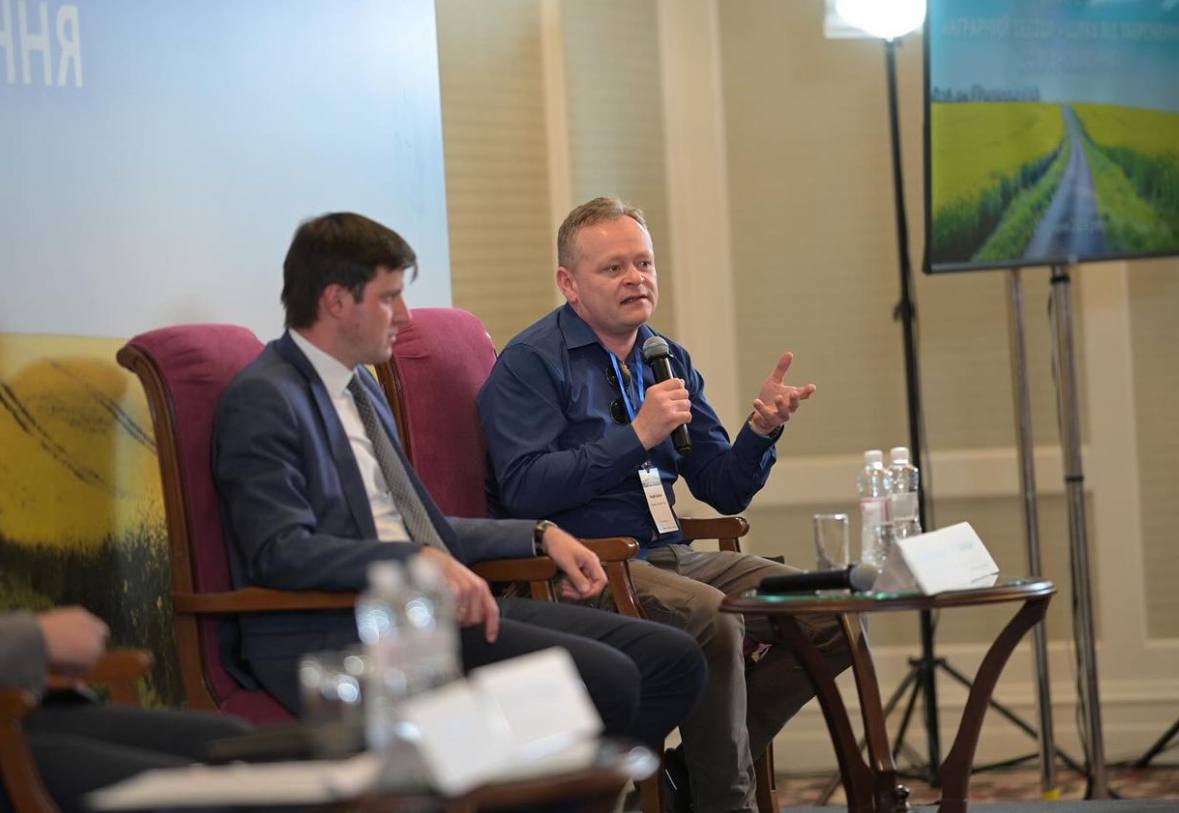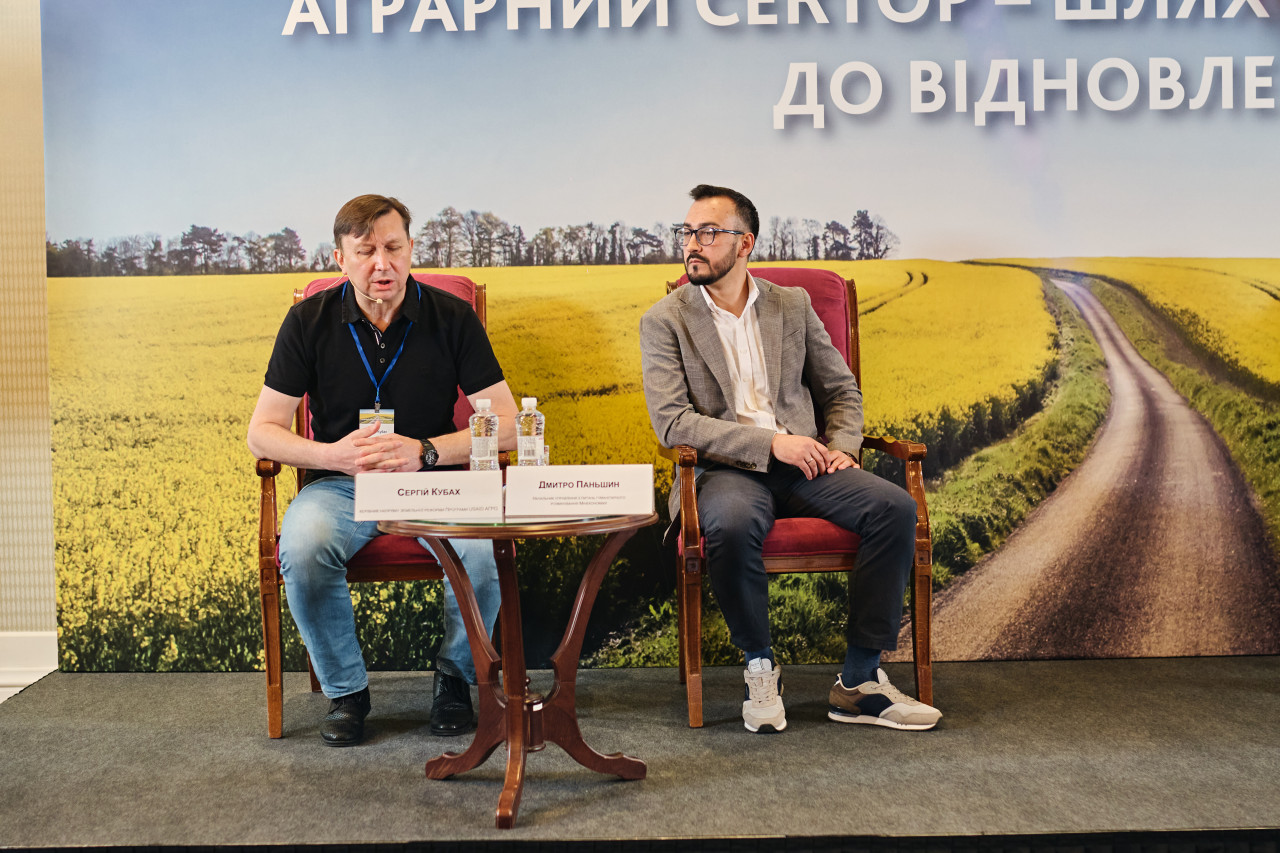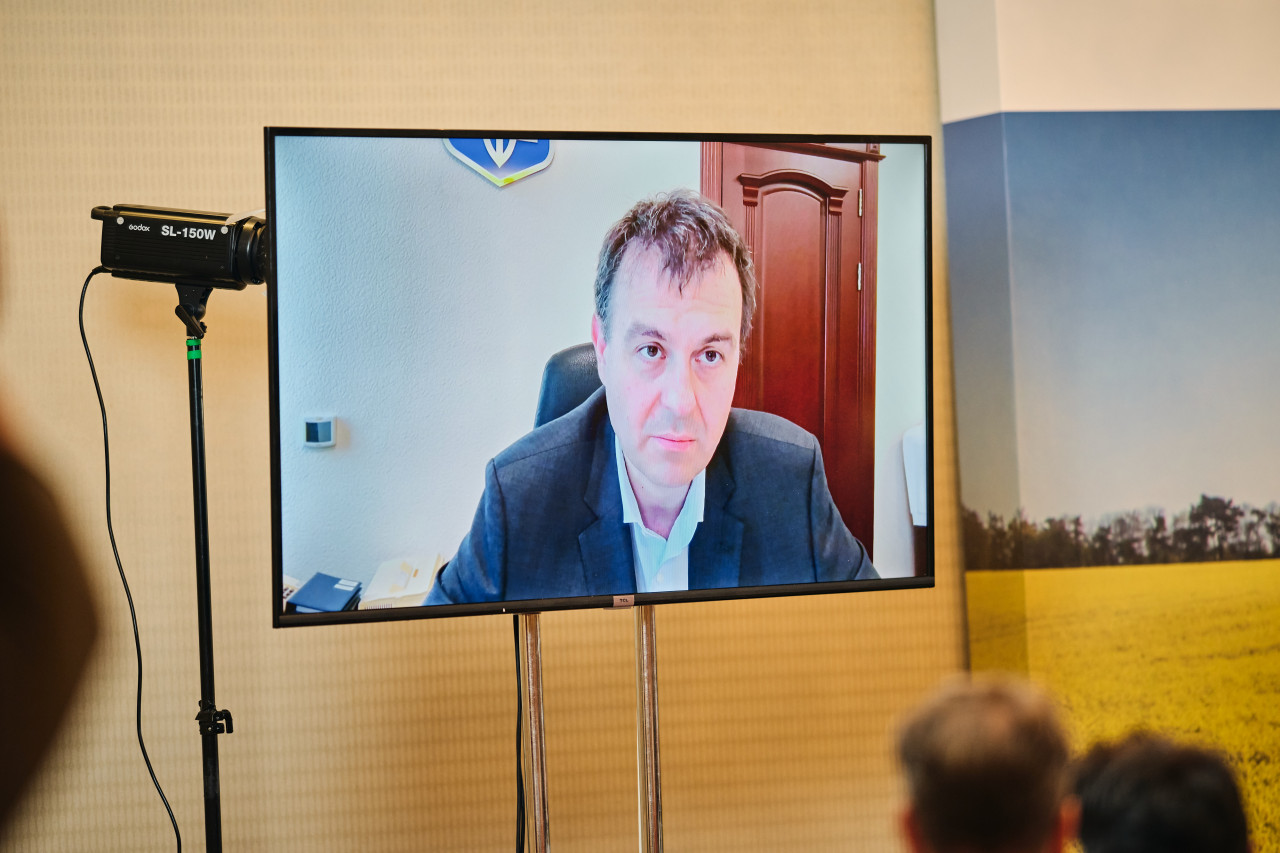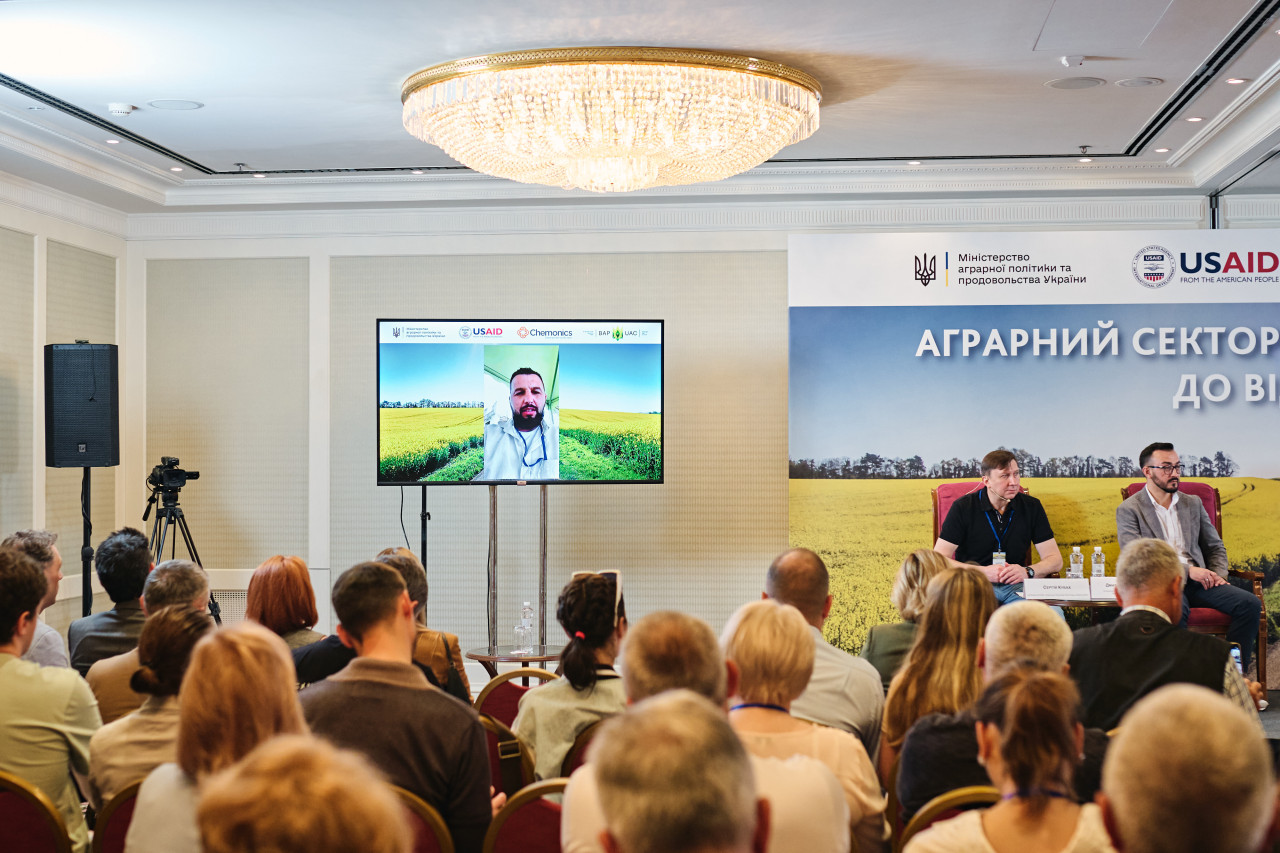On 23 May 2024, the conference “Agricultural Sector - the Way from Preservation to Recovery” was held in Kyiv, during which agrarians and government officials discussed initiatives to support the affected enterprises.

The event was organized by the Ukrainian Agri Council (UAC) with the support of the USAID Agriculture Growing Rural Opportunities Activity in Ukraine (AGRO) as part of the joint project “Supporting agricultural MSMEs affected by active hostilities or Russia’s temporary occupation”.
The conference was attended by more than 100 participants: agricultural producers, representatives of state authorities, local governments and agricultural associations.
The war-affected farmers were presented with the state support programs, rebuild and restore agricultural production in the de-occupied territories and the results of the project “Supporting agricultural MSMEs affected by active hostilities or Russia’s temporary occupation”, implemented by the UAC with the support of the USAID AGRO. The farmers of the affected regions also had the opportunity to raise problematic issues, ask questions and receive meaningful answers.

Serhiy Kubakh, Land Reform Team Lead USAID AGRO, emphasized the significant progress in legislative protection of Ukrainian farmers from the consequences of Russian aggression.
“We have come a long way from a lack of understanding of the key problems of affected legal entities to changes in national legislation that protect farmers and give them a small but significant opportunity to withstand the difficult conditions of today,” he said: “The most important thing is that the UAC and the USAID AGRO Program were among the first in 2022 to start collecting documents and data on the crimes of the occupiers and the damage that is taking place in Ukraine. This will be the basis for compensation in the future,” Kubakh said.
Tax issues are the most important for agricultural producers nowadays. From the first days of the war, Ukraine's frontline territories, which suffered the most from Russian aggression, were exempt from land, environmental and real estate taxes. During the conference this issue was emphasized by Danylo Hetmantsev, Chairman of the Verkhovna Rada Committee on Finance, Taxation and Customs Policy.

According to him, more than 50,000 people have benefited from these tax breaks. In 2022, land tax benefits were granted in the amount of over UAH 10 billion, and a similar amount was granted in 2023. In 2023-2024, the decision to grant tax exemptions will be up to local governments.
“We have to understand that any local tax benefits affect local governments and local budget revenues. That is why the Budget Code of Ukraine provides for compensation mechanisms for local governments. These measures are important for maintaining economic stability and restoring the frontline areas, but the need to compensate for the losses of local budgets remains an important issue that needs to be addressed,” Hetmantsev said.
The resumption of lending to agricultural producers from the areas close to the war zone is one of the issues that the Ministry of Agrarian Policy is currently working on.
“Objectively speaking, there is no lending to farmers in the zone of hostilities. We have asked banks to provide us with information on the number of applications from these areas and the number of rejections by the end of May. We will further address this issue within our working group. Together with the Ministry of Economy and banks, we also need to develop potential insurance options so that farmers can get loans and attract donor funds,” said Taras Vysotskyi, Acting Minister of Agrarian Policy and Food of Ukraine, adding that the draft law No. 11180-1 is currently under consideration in the Parliament, which will be able to legislate the issue of loan debts of farmers from the occupied territories.

Demining was an important issue at the conference. Ihor Bezkaravaynyi, Deputy Minister of Economy, explained who can receive compensation for humanitarian demining and how the cost of demining on different types of land plots will be determined.
“The cost of the work will consist of two parts: 80% will be covered by the state budget, and 20% by farmers. We are working on a mechanism to support farmers who do not have sufficient resources for this. We are negotiating with the EBRD and IFC to provide cheap loans. Everything will not work immediately, but we will take the first steps together. It is important to note that we are talking about sites with low or medium levels of contamination to make it economically viable. For heavily contaminated sites, which require hundreds of dollars per hectare to clear, a different approach will be taken,” Bezkaravaynyi said.
Also, during the conference, Pascal Turlan, Program Director of Project Expedite Justice, spoke about ensuring justice for victims of Russian aggression in Ukraine.
“Since April 2022, Project Expedite Justice has been operating in Ukraine. Our main mission is to counteract the most serious crimes, including genocide, war crimes and crimes against humanity, and to identify the most appropriate ways to bring the perpetrators to justice. Theft of agricultural products is one of the focuses of our project. We assist investigations and provide support to judges and prosecutors in investigating this type of crime. Investigating the destruction and looting of Ukraine's agricultural resources, the Expedite Justice Project found that the Russian attack on Ukraine's grain and other food stocks was planned before the aggression began in February 2022,” he said.
Andrii Dykun, Chairman of the Ukrainian Agri Council, expressed his gratitude to Ukrainian farmers for their resilience and selfless work in the difficult conditions of a full-scale invasion.
“You are the greatest value of our country. The frontline is more than 1,000 km long, and we have to fight for our agricultural enterprises and save hundreds of entrepreneurs with business experience. These people should stay in Ukraine to set up processing, create jobs and restore the economy of the frontline areas,” he stressed and thanked the USAID AGRO Program for the fruitful teamwork during the project implementation.
It is worth reminding that during the conference “Agricultural Sector - the Way from Preservation to Recovery”, the UAC and the USAID AGRO Program presented the results of a joint project to support agricultural producers affected by active hostilities and the temporary occupation of Russia.
For 9 months, the project team actively cooperated with representatives of the parliament, ministries and other executive authorities, developing systemic solutions to support affected agricultural producers from the frontline and de-occupied territories. This work resulted in the adoption of 6 important legislative changes on taxation, lending and demining of agricultural land in the frontline areas. In addition, the project established a toll-free hotline to provide legal, expert and other advisory support to affected agricultural producers. The analysis of the most frequently asked questions became the basis for developing the necessary legislative initiatives.
Monday, 27 May 2024